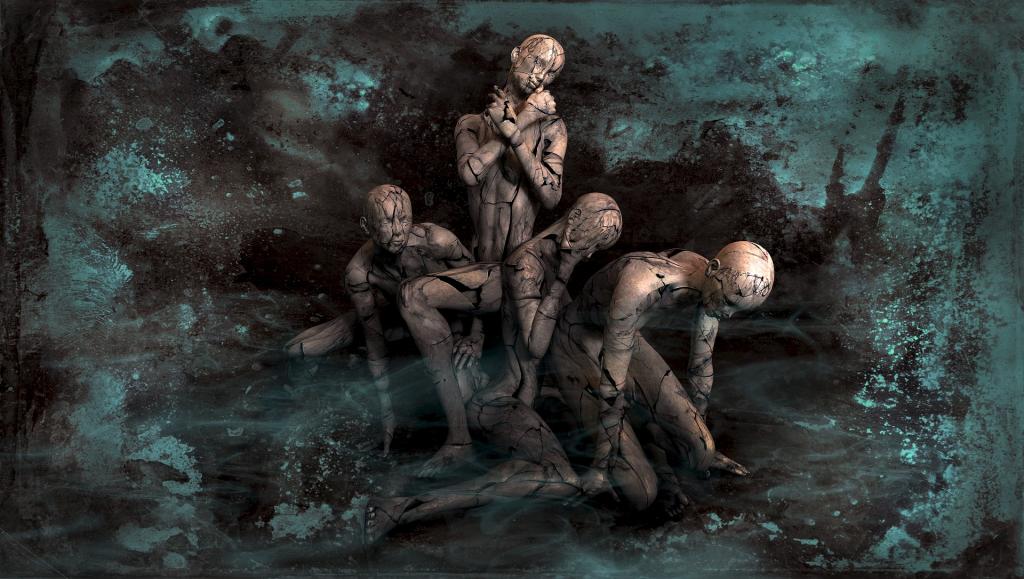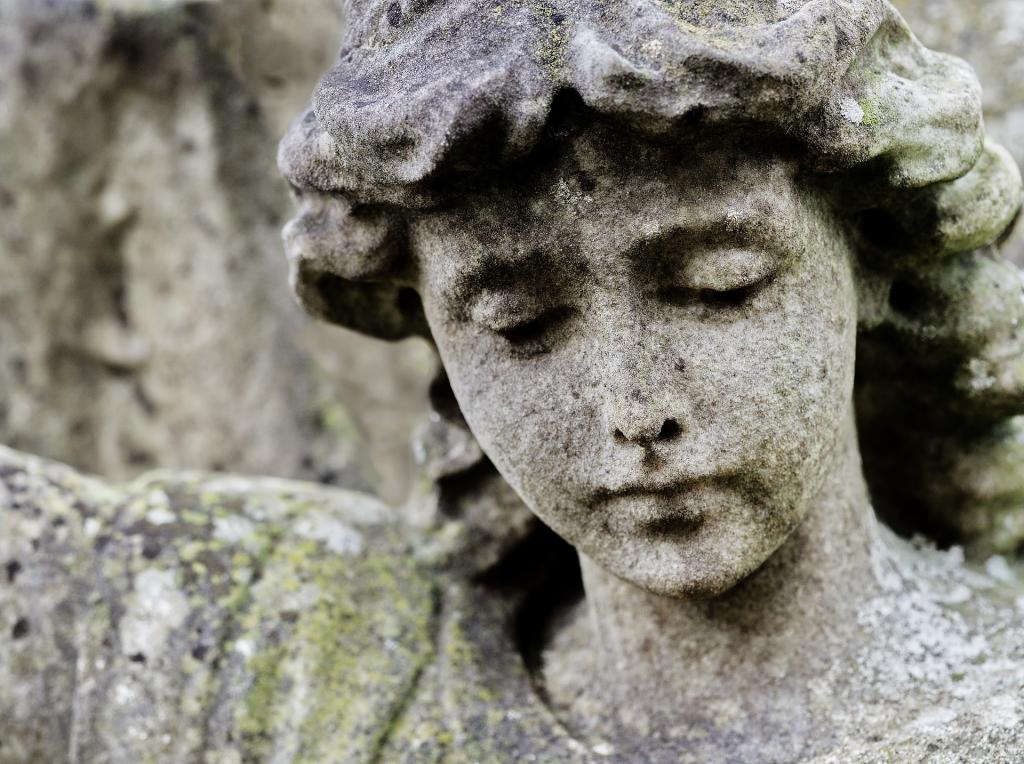
The Vatican has decided to double down, yet again, on its commitment to homophobia and the exclusion of LGBTQ people. Yesterday, the Pope endorsed a statement from the CDF (Congregation of the Doctrine of the Faith) asserting that the Church cannot bless same-sex unions.
This is no surprise. It’s part and parcel of a sexual ethic that routinely prioritizes power over compassion, the Law over love. And until the Church learns that an institution which constantly calls for repentance needs to, you know, be able to actually repent, it’s never going to change.
Misogyny by Any Other Name
Before we proceed, I want to call the Church’s teaching on gender and sexuality what it is. Evil. I want to apologize for having taken so long to see this, for having internalized so much misogyny and homophobia and for having been, for so long, complicit in defending it. I now repent, and I repudiate whatever lies I spread in the name of God.
Sexism is not just a different way of looking at things. Homophobia is not internally and rationally consistent. These are not the result of holding to a higher standard than that preached by the world. They are not necessitated by some natural law.
The sexual teaching of the Catholic Church is an ethic based on self-righteous contempt for human beings. Its foundation is not the love of God, but the fear of bodies, and a firm belief in the inferiority of women. (The link here only gives a handful from a mountain of possible quotes: any woman who wants to wade through historical Christian writings on women has to first develop an iron skin and a strong ability to dissociate from herself.)
Don’t believe me? Okay, let’s say that you knew someone who had frequently expressed contempt, and sometimes even acted violently towards you over the course of many years. Then, someone came to you and said “But he’s changed. He really loves you now.”
But the man does not apologize. He is still unwilling to invite you to his parties because you’re just in a different class from the kind of people he associates with. He still reserves the right to tell you who you are, who you ought to be, and how you should behave and feels no need to take your wishes into account when forming these judgements. He doesn’t listen to you. You constantly hear rumours that he still badmouths you, just not in public anymore. He is still friends with your enemies and does nothing when they bully and harass you. Occasionally he still “slips up” and refers to you in insulting and offensive ways. He does not retract any of the slanders that he published about you, and he continues to explain how many of the things he does to hurt you aren’t actually hurtful and, really, are necessary if you think about it.
But he insists that, no, he loves you and sees you as an equal. However, it’s really quite unreasonable of you to expect him to treat you as an equal, after all, there’s such a very long tradition of him treating you as a subordinate. If he changed that now, can’t you see he would lose face? Not that he doesn’t love you. Just, it’s impossible. “It’s not that I hate you,” he assures you. “It’s not that you’re inferior. It’s just that we’re different. You have a special genius. Specifically, a genius for caring about me more than I care about you, a genius for humbly working in my interests without acknowledgement or pay, a genius for patiently forgiving me no matter how little remorse I show, and a genius for doing what I say.”
Would the mere fact of this person saying “I’m the only one who really values you” convince you in the slightest? For that matter, sisters, do you know any man who would accept “love” on such demeaning and insulting terms?
Catholic sexual morality gets its start in a culture and an ideology that believes women to be inferior. That assumption is at the basis of the teaching, and the Church is completely unwilling to revisit the conclusions that it arrived at for centuries based on that belief. It’s willing to change the facade, to paper over the worst of it and replace the old, blatant misogyny with new, more subtle forms. But the practical conclusions are still the same and they still cause harm to women, and to anyone (like LGBTQ people) caught in the misogynistic crossfire.
The State of Virginity
What do I mean, exactly, when I say that the Church’s teaching is based on misogyny? Isn’t it (I hear my former self asking) based on a call to chastity that applies as much to men as to women? Isn’t it derived from a desire to protect women from sexual exploitation by men? Didn’t the right to remain a virgin actually free women from patriarchal control?
It is, I think, important to acknowledge that Christianity may have been less misogynistic than some of the philosophies that came before it. It’s possible that during the early years of the Church women may have made some gains in some areas. However, there are a few important considerations. One is that Roman women prior to the rise of Christianity had already obtained certain rights that would be stripped away under Christendom — rights that were often rejected through an appeal to Catholic sexual teaching, particularly the teachings on divorce, male headship, and the particular “weakness” of women in respect to sin.
Women in Imperial Rome gained the right to divorce their husbands and to own and dispose of property. By the second century, the most common form of marriage in the Empire was marriage sine manu that is, marriage without authority. In this form, a woman remained under the (usually nominal) authority of her father after marriage until his death, at which point she assumed authority for herself. The common claim that the possibility of declaring oneself a holy virgin freed women from forced marriage in a brutally patriarchal society is not completely wrong, but it is a distortion of the facts.
Secondly, to properly evaluate the practices of chastity and virginity in early Christianity, we have to look at the way that early Christian writers argued for, and talked about, these practices. As early as the 2nd and 3rd Century, we can see a discourse surrounding virginity and chastity that is deeply infested with misogynistic practices and ideals.
Tertullian and Cyprian both take it upon themselves to praise virginity in terms that imply a strong contempt for woman’s sexuality. Tertullian repeats the old canards (though I suppose they might have been new canards at the time) about women being objects “for the concupiscence of men,” and uses this to establish certain controls over the dress and behaviour of virgins. Cyprian praises virginity, but makes it clear that what is so wonderful about a virgin is that she extinguishes “all the fleshly desires” within her. He too offers proscriptions for virgins, specifically that they are to avoid nice clothes, jewelry, trips to the baths and other forms of self-care that might make a woman unduly attractive.
From very early on, then, the practice of virginity, while it might free women from unwanted marriages, also situates them as a locus of male control and male fetishization. The virgin is not liberated, as woman, from male domination; rather, she is liberated from the authority of her father and husband in order to re-establish her subordination under the authority of the Fathers and of the Bridegroom (Christ) who is always and only represented by the male.
A Shrew in the House
More troubling than that, though, is the role that the virgin plays in underscoring the practice of treating women who are sexually active (even in marriage) as objects of scorn and contempt. When the chastity of virgins is praised, it is not difficult to see, in the praises, an archetype of virginal purity, inviolable in beauty, who has appeared frequently in the erotic fantasies of men for as long as we have records of such things. When men are persuaded towards chastity … well, that’s when the blatant misogyny starts flying.
Women are intrinsically greedy, fickle, jealous, nagging, burdensome, inclined to vanity and gossip, and just, basically, not worth it. Gregory of Nyssa, John Chrysostom, Basil of Ancyra, Eusibius of Emesa, Saint Ambrose, and, of course, St. Jerome (who dwells on the subject frequently, at length, and with particular viciousness) all encourage men to celibacy by pointing out the disadvantages of having a wife. Some of them stick to merely pointing out the dissatisfactions of the married state, while others wax on about the faults, flaws and frailties of women which contribute to the miseries and troubles of a married man.
This means that while virginity may have given freedom to individual women within Roman society it was, starting in some of our earliest sources, already being established as a means of differentiating between the ideal woman (a woman whose feminine body was concealed by plain clothing and whose sexual and reproductive femininity were never manifested) and ordinary women, who were sources of sin and strife.
……………………
In part 2, we’ll look at how Pagan notions of male virility, and female inferiority, shape the particular proscriptions that make up Catholic sexual morality — and we’ll see how this misogyny lies at the root of the Church’s rejection of same-sex unions.
Image courtesy of Darksouls1 at Pixabay
Conscience vs. Consequences
People who benefit from











